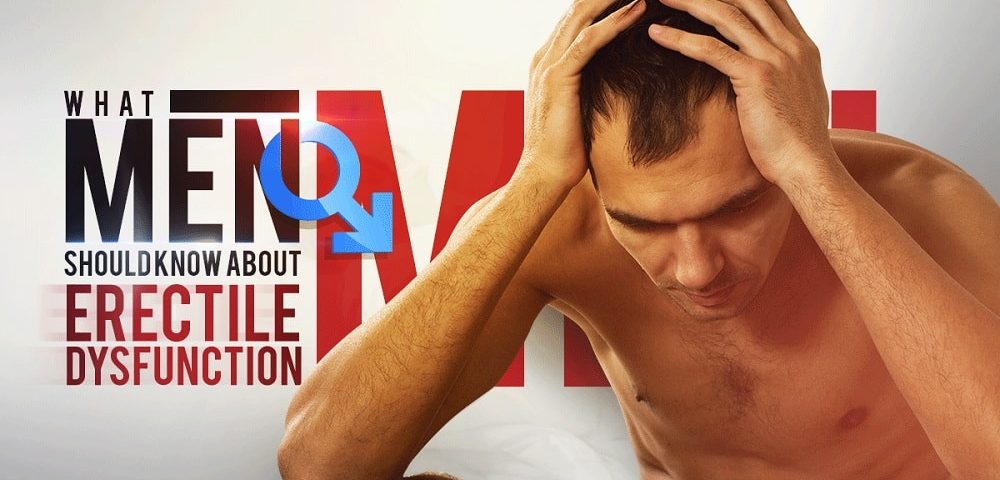A man is considered to have erectile dysfunction if he regularly finds it difficult getting or keeping a firm enough erection to be able to have sex, or if it interferes with other sexual activity.
Most men have occasionally experienced some difficulty with their penis becoming hard or staying firm. However, erectile dysfunction (ED) is only considered a concern if satisfactory sexual performance has been impossible on a number of occasions for some time.
Men who have a problem with their sexual performance may be reluctant to talk with their doctor, seeing it can be an embarrassing issue.
However, erectile dysfunction (ED) is now well understood, and there are various treatments available.
Facts on erectile dysfunction:
- Erectile dysfunction (ED) is defined as persistent difficulty achieving and maintaining an erection sufficient to have sex.
- Organic causes are usually the result of an underlying medical condition affecting the blood vessels or nerves supplying the penis.
- Numerous prescription drugs, recreational drugs, alcohol, and smoking, can all cause erectile dysfunction (ED).
- Causes are usually medical but can also be psychological.
Causes
Normal erectile function can be affected by problems with any of the following systems:
- blood flow
- nerve supply
- hormones
Physical causes


Erectile dysfunction can cause embarrassment.
It is always worth consulting a physician about persistent erection problems, as it could be caused by a serious medical condition.
Whether the cause is simple or serious, a proper diagnosis can help to address any underlying medical issues and help resolve sexual difficulties.
The following list summarizes many of the most common physical or organic causes of erectile dysfunction (ED):
- heart disease and narrowing of blood vessels
- Parkinson’s disease
- Multiple sclerosis
- hormonal disorders including thyroid conditions and testosterone deficiency
- smoking, alcoholism, and substance abuse, including cocaine use
- treatments for prostate disease
- surgical complications diabetes
- high blood pressure
- injuries in the pelvic area or spinal cord
- radiation therapy to the pelvic region
- high cholesterol
- obesity and metabolic syndrome
- structural or anatomical disorder of the penis, such as Peyronie disease
Atherosclerosis is a common cause of blood flow problems. Atherosclerosis causes a narrowing or clogging of arteries in the penis, preventing the necessary blood flow to the penis to produce an erection.
Numerous prescription medications can also cause erectile dysfunction (ED), including those below. Anyone taking prescription medications should consult their doctor before stopping or changing their medications:
- drugs to control high blood pressure
- drugs that act on the central nervous system, including some sleeping pills and amphetamines
- anxiety treatments
- some cancer drugs, including chemotherapeutic agents
- prostate treatment drugs
- antidepressants
- opioid painkillers
- heart medications
- some diuretics
- hormone drugs
- the peptic ulcer medication
Physical causes account for 90 percent of erectile dysfunction (ED) cases, with psychological causes much less common.
Psychological causes
In some rare cases, a man may usually have had erectile dysfunction (ED) and may never have achieved an erection. This is called primary erectile dysfunction (ED), and the cause is almost always psychological if there is no obvious anatomical deformity or physiological issue. Such psychological factors can include:
- severe anxiety
- guilt
- depression
- fear of intimacy
Most cases of erectile dysfunction (ED) are ‘secondary.’ This means that erectile function has been normal, but becomes problematic. Causes of a new and persistent problem are usually physical.
Less commonly, psychological factors cause or contribute to erectile dysfunction (ED), with factors ranging from treatable mental health illnesses to everyday emotional states that most people experience at some time.
It is important to note that there can be overlap between medical and psychosocial causes. For instance, if a man is obese, blood flow changes can affect his ability to maintain an erection, which is a physical cause. However, he may also have low self-esteem, which can impact erectile function and is a psychosocial cause.
Does riding a bicycle cause ED?
Questions remain about the effects on men’s health of riding a bicycle.
Some research has raised concerns that men who regularly cycle for long hours could have a higher risk of erectile dysfunction (ED), in addition to other men’s health issues such as infertility and prostate cancer.
The most recent study to investigate this found that there was no link between riding a bike and erectile dysfunction (ED), but it did find an association between longer hours of cycling and the risk of prostate cancer.
Prostate disease and ED
Prostate cancer does not cause erectile dysfunction (ED).
However, prostate surgery to remove the cancer and radiation therapy to treat prostate cancer can cause erectile dysfunction (ED).
Treatment of non-cancerous, benign prostate disease can also cause the condition.
Symptoms
Men may not always successfully achieve an erection, and if this rarely happens, it is not considered a medical problem.
However, erectile dysfunction (ED) does not only refer to a complete inability to achieve an erect penis. Symptoms can also include struggling to maintain an erection for long enough to complete intercourse or an inability to ejaculate.
There are often also emotional symptoms, such as embarrassment, shame, anxiety, and a reduced interest in sexual intercourse.
A man is considered to have erectile dysfunction (ED) when these symptoms occur regularly.
Exercises
There are exercises a man can carry out to reduce the effects of erectile dysfunction (ED).
The best way to treat erectile dysfunction without medication is by strengthening the pelvic floor muscles exercises. These are often associated with women looking to strengthen their pelvic area during pregnancy, but they can be effective for men looking to regain full function of the penis.
Firstly, find the pelvic floor muscles. You can achieve this by stopping mid-stream two or three times the next time you urinate. The muscles you can feel working during this process are the pelvic floor muscles.
Make sure you are breathing naturally throughout this process and avoid pushing down as if you are forcing urination. Instead, bring the muscles together in a squeezing motion.
Aerobic exercise, such a jog or even a brisk walk, can also help the blood to circulate better and can help improve erectile dysfunction (ED) in men who have circulation issues.




